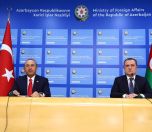Click to read the article in Turkish
The clashes between Armenia and Azerbaijan, two neighbouring countries in the South Caucasus, have been continuing in the Nagorno-Karabakh, or Upper Karabakh, region since September 27.
Following meetings in Moscow on October 10, the countries agreed on a humanitarian ceasefire so that the conflicting sides could retrieve bodies left on the battlefield and conduct a prisoner exchange. However, the clashes started again following this brief truce.
Amid these conflicts, the government of Turkey, especially President Recep Tayyip Erdoğan, has been expressing support for Azerbaijan.
Against this background, Peoples' Democratic Party (HDP) Diyarbakır MP Garo Paylan, who is himself an Armenian citizen of Turkey and has recently been targeted by hate speech on a newspaper ad, has penned an opinion piece for the US-based New York Times newspaper.
Entitled "How Turkey's Military Adventures Decrease Freedom at Home" and published today (October 15), Paylan's op-ed offers an insight into how Turkey's "involvement in regional conflicts such as the dispute between Azerbaijan and Armenia has whipped up nationalist fervor and obliterated space for advocates of peace and democracy."
We share some highlights from Paylan's article:
'Closing down of the democratic space at home'
"A procession of cars filled with men waving the flag of Azerbaijan, honking and whistling drove through the Kumkapi area in Istanbul, which is home to the Armenian Patriarchate of Istanbul and many Armenian families. The car rally, on Sept. 28, was a provocation, a threat that filled my community, the tiny Armenian community - 60,000 out of 83 million - in Turkey with fear.
"After a decades-long fitful truce, the conflict over the status of Nagorno-Karabakh - a breakaway Armenian enclave in Azerbaijan - between Azerbaijan and Armenia resumed last month, leading to a large military deployment, destruction of civilian centers and thousands of casualties.
"In this war, Turkey strongly supports Azerbaijan, with which it shares ethnic bonds, and President Recep Tayyip Erdogan dismissed global calls for a cease-fire. He has supported Azerbaijan with defense technology, drones and propaganda machinery.
"This strategy is in line with Mr. Erdogan's government's decision to increase our country's military footprint abroad - Syria, Libya and the eastern Mediterranean - to enhance Turkey's position as a regional power.
"But there is also a direct correlation between the Turkish government's desire to delve into conflicts abroad and the closing down of the democratic space at home.
"Turkey's involvement in regional conflicts has whipped up nationalist fervor, obliterated space for advocates of peace and democracy and deepened a sense of fear and precarity among the minority populations.
'I know very well the meaning of this message'
"On Sept. 27 I criticized Turkey's warmongering in the Nagorno-Karabakh conflict on Twitter, arguing that Ankara should stop throwing gasoline on that fire, as there will be no winners in a war and both Armenian and Azeri people will lose. I urged my countrymen, 'We must do what we can for a cease-fire.'
"Because of my country's authoritarian turn, my background and political leanings are enough to turn me into a target. On Oct. 5, the Eurasia Institute of Strategic Affairs, a nationalist outlet, published a full-page advertisement in support of Azerbaijan in Sabah, a newspaper with links to the Erdogan family. It was signed by former and current members of the Turkish Parliament from the A.K.P.
"As an Armenian from Turkey and a descendant of genocide survivors, I know very well the meaning of this message. In 2007, Hrant Dink, a celebrated and outspoken Armenian journalist from Istanbul, who edited the Agos newspaper, was assassinated by a Turkish nationalist in a similar period of heightened nationalism. Mr. Dink once described Turkey's Armenian minority as 'living with the trepidations of a dove.'
"Despite the recent threats, I was encouraged by thousands of people calling, writing and gathering signatures expressing their support for me. The other day, someone cleaning the streets shouted at me, 'My deputy, if they take you away one day and you cannot see us, know that we are here.' And I do.
'Authoritarianism, one-man rule, militarism...'
"You may wonder why we continue to struggle for democracy in this country. Things were not always so dark in Turkey. A decade ago, Turkey was a relatively promising democracy, on path for European Union membership and calling for regional peace.
"It coined the 'zero problems with neighbors' policy, and at one point, we were even close to normalization of relations with Armenia.
"But Turkey took a path toward authoritarianism after 2015, and our basic civil rights are on hold today. President Erdogan, once an advocate of European Union-led reforms and a peace process with the Kurds, over the past decade has established a one-man regime, moved away from democracy and entered a coalition with hard-right Turkish nationalists. Greater militarism has followed.
"Militant nationalism and authoritarianism can neither solve our domestic problems nor help the region. A better choice for my country will always be to seek regional peace and cultivate better ties with our neighbors. Turkey must encourage Armenia and Azerbaijan to return to peace talks and facilitate a lasting settlement to the Nagorno-Karabakh dispute.
'That is why I will not remain silent'
"On Saturday, Russia, which has a defense agreement with Armenia and good relations with Azerbaijan, brokered a cease-fire between the two countries. This highlighted Russia's role in the region and has left Turkey out of the diplomatic game. If President Erdogan wants to be relevant, he should stop inflaming tensions in the Caucuses and support the cease-fire between Azerbaijan and Armenia.
"But I am not naïve, and I know that only a democratic Turkey can help stabilize its region and act as a responsible member of the international community. That is why I will not remain silent in the face of threats and will keep on fighting for democracy here and peace abroad." (SD)
* Click here to read the full article in the New York Times




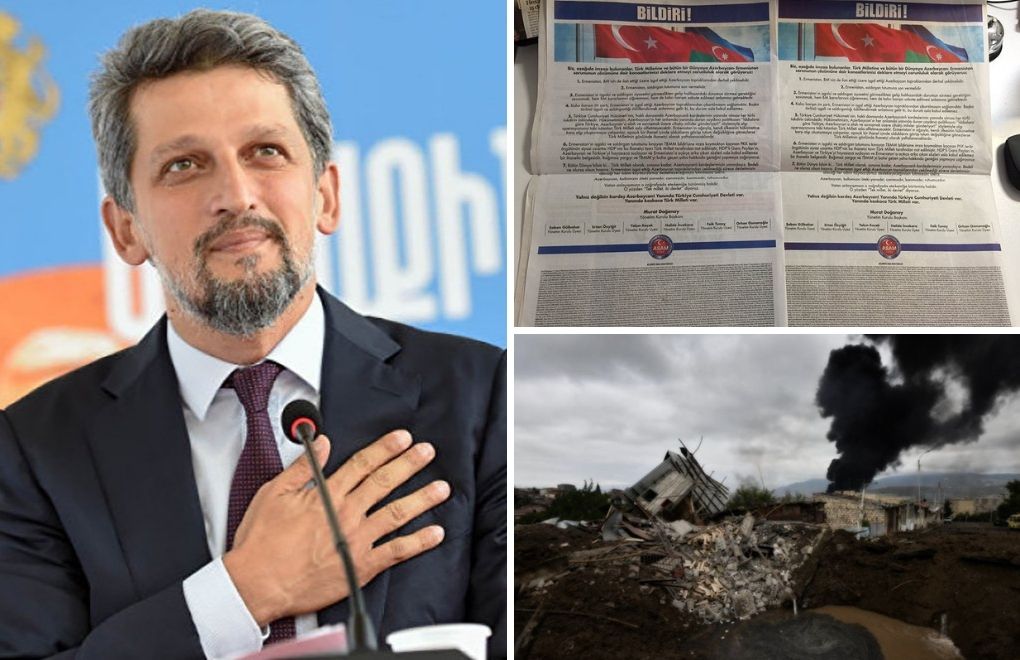
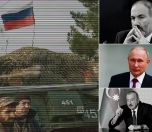
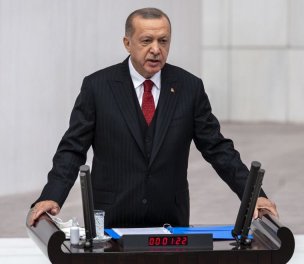


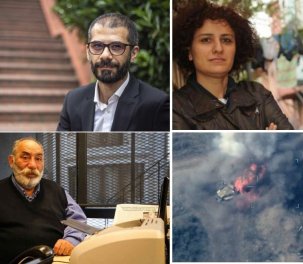
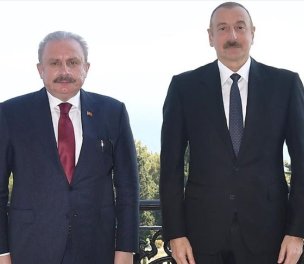
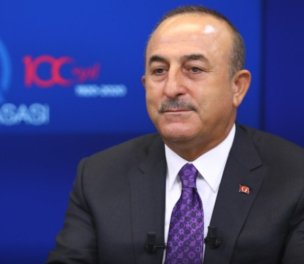
-132.jpg)
